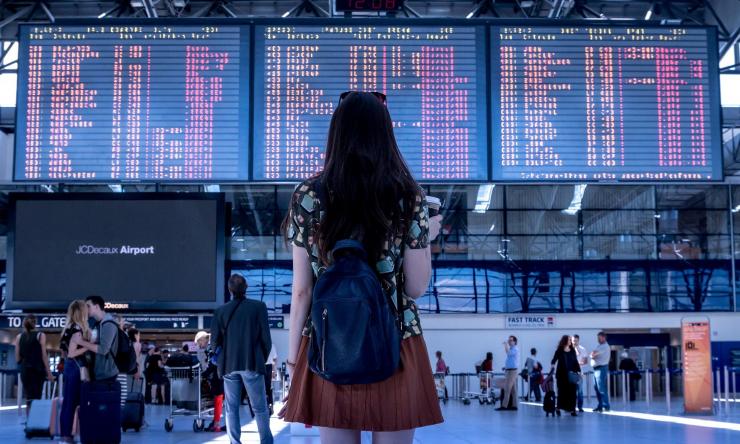Is it safe to travel this summer?
Many Americans who have put off travel plans during the pandemic are eager to begin traveling again. So how safe will it be to travel this summer? Baylor College of Medicine infectious diseases expert Dr. Prathit Kulkarni shares tips for people planning a trip.
When considering whether to book your summer vacation, Kulkarni recommends first consulting the Centers for Disease Control and Prevention travel guidelines. The CDC says that fully vaccinated people can safely travel within the U.S. People are considered fully vaccinated two weeks after receiving their final vaccine dose.
“All of the vaccines are doing an outstanding job of preventing symptomatic disease. We are also seeing some emerging evidence now that the mRNA vaccines are also quite good at preventing asymptomatic infection, and thereby, asymptomatic transmission,” said Kulkarni, assistant professor of medicine in infectious diseases at Baylor. “In general, the risk of asymptomatic infection and transmission among groups of fully vaccinated people is relatively low. If you are not already vaccinated and are eligible for vaccination, we recommend getting vaccinated as soon as you can.”
Kulkarni notes that fully vaccinated travelers in public should still wear a mask, stay 6 feet away from others, and wash their hands frequently. Anyone feeling sick should defer travel.
“If you’re fully vaccinated and following public health guidelines, it’s overall safe to fly,” Kulkarni said. “The risk of traveling if fully vaccinated is not zero of course but is reasonably low.”
For international travel, Kulkarni recommends researching the destination country before booking a flight. Consider whether that country is seeing a surge in COVID-19 cases. Additionally, testing requirements can vary by country. Currently, travelers returning home to the U.S. need a negative COVID-19 test within three days of their return trip. The CDC also recommends getting tested 3-5 days after travel, but self-quarantining is not needed for those who are fully vaccinated (unless required by state or local public health guidance).
Can children go on vacation too?
Parents hoping to bring their kids on vacation are eagerly asking whether it’s safe for unvaccinated children to travel. Unfortunately, Kulkarni says there’s no clear-cut answer, and it depends on everyone’s individual risk tolerance.
“The risk of a bad outcome from COVID-19 in children is quite low, but kids can get infected and transmit the virus,” Kulkarni said. “Parents can discuss these risks with their child’s pediatrician. If you do elect to travel with children, follow the usual public health guidelines. This is the best way to minimize risk.”
Kulkarni also recommends that parents consider the risks and benefits of the trip. “If you are going to see an elderly relative, the need to do that may outweigh the risk," he said. "If you’re going for a fun vacation, you may say the benefits don’t outweigh the risk. Or you may say the pandemic has been a big mental health strain on my family, and we need to get away to decompress. Those things are hard to quantify, and they will be different for different people.”










